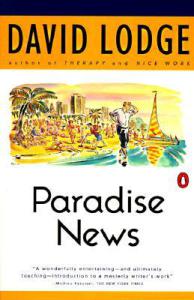
The year is 2022. Israel has been dissolved, and the US is plagued by antisemitism. Amidst this political turmoil, an American Jewish family, the Jacobsons get together for Passover in Los Angeles.
From the beginning, there is a lot of drama going on in Tell Me How This Ends Well. The patriarch of the family, Julian is an abusive, critical person who constantly put down his wife and kids. Now the kids are all grown up – Mo is a failed actor with five sons, Edith is an ethics professor caught up in a sex scandal, Jacob is a gay playwright in love with a German. When they learn their mother is terminally ill and only has few months to live, they hatch a plan to make her last days enjoyable by taking their tyrant father out of the picture!
All the characters in the story are flawed, and such stories are not usually my cup of tea. However, Tell Me How This Ends Well was different. I found all the characters except Julian to be sympathetic. Julian was a monster to his kids and wife, and I would have been surprised if their lives did not have long-lasting negative consequences as a result!
The format of Tell Me How This Ends Well is somewhat similar to Anne Enright’s The Green Road. Each Jacobson has a chapter of their own, just like Madigans have in The Green Road. But as far as family sagas go, I prefer Tell Me How This Ends Well over The Green Road. In terms of prose, Ann Enright is a better writer than David Samuel Levinson, but Enright’s story was just too gloomy for me. While Levinson’s story also has a certain amount of melancholy in it, Levinson’s sense of (dark) humor made Tell Me How This Ends Well an entertaining read.
[Note: I received this book from Blogging for Books for this review. Click here for more information about Tell Me How This Ends Well or the author biography]
Advertisements Share this:




